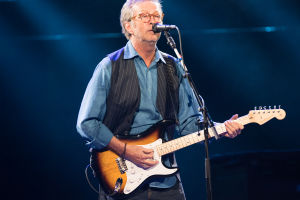Music Through Time
When we think about music, it's more than just sound—it's a reflection of culture, emotion, and the times we live in.
From the elegant notes of classical symphonies to the bass-heavy beats of electronic dance floors, music styles have come a long way. But how did we get here?
What inspired these shifts in sound and rhythm? As music lovers, we're not just listeners—we're part of a constantly evolving story. Let's take a journey together through the major stages of music's evolution and see where it might go next.
Classical Roots: The Foundation of Structure
Our musical timeline often begins with classical music, which dominated the European music scene from the 17th to the early 19th centuries. Think names like Bach, Mozart, and Beethoven. Their compositions weren't just beautiful—they were structured, layered, and emotionally rich.
Classical music laid the foundation for musical theory. It introduced key concepts like harmony, counterpoint, and orchestration that still influence how songs are written today. Even pop songs sometimes borrow from classical scales or structures, proving that these early sounds are still alive in today's music.
Jazz and Blues: Emotion in Every Note
As we moved into the 20th century, jazz and blues emerged—music styles that placed emotion and improvisation at the center. Blues reflected real-life struggles, while jazz broke rules and embraced spontaneity.
We can still feel the legacy of jazz in today's R&B, soul, and even hip-hop. The use of instruments like the saxophone and piano, along with offbeat rhythms and smooth vocal lines, can be traced back to this golden age of musical creativity.
Rock and Roll to Pop: A Global Revolution
By the 1950s and '60s, rock and roll exploded, thanks to artists like Elvis Presley and later The Beatles and Queen. This music wasn't just about rhythm—it was about youth, rebellion, and energy. Rock reshaped how we viewed music: no longer just background sound, but a powerful form of identity.
Then came pop music, which simplified rock's structure but kept the energy. From Michael Jackson to Taylor Swift, pop has ruled global charts for decades with catchy hooks, relatable lyrics, and mass appeal. It's music built to stick in our heads—and it works.
Hip-Hop and Rap: The Voice of the Streets
Emerging in the 1970s, hip-hop became a voice for the unheard. With rhythmic spoken lyrics and heavy beats, it told real stories—about life, survival, community, and ambition.
Today, hip-hop is one of the most influential genres worldwide. It's more than music—it's culture. The way we dress, talk, and even dance has been shaped by this genre. It continues to evolve, blending with pop, rock, and even electronic music to create new styles.
Electronic and Digital: The Future Is Now
Enter the digital age—and the rise of electronic music. From the pulsing rhythms of techno to the drop-heavy sounds of EDM, electronic music redefined how we create and experience sound. DJs became global stars, and laptops became music studios.
Technology changed everything. With software like Ableton and FL Studio, anyone with a computer can become a music producer. Genres like lo-fi, synthwave, and chillhop have grown online, offering fresh and creative listening experiences.
Electronic music isn't just about dancing anymore—it's about sound design, emotion, and immersive storytelling. And it's not going anywhere.
Trends to Watch: What's Next?
So where is music heading? Here are a few trends we're seeing:
• Genre-blending: Artists are mixing styles more than ever. Country with trap? Pop with reggae? It's all fair game.
• Short-form music: Thanks to streaming platforms, songs are getting shorter and more hook-focused.
• AI and virtual musicians: Technology is pushing boundaries. Some artists are using artificial intelligence to help create music or even build virtual performers.
Music keeps changing because we keep changing. Our tastes, our tools, our lives—all shape what we listen to next.
Conclusion: We Are the Evolution
From classical elegance to digital beats, music has been on an incredible journey—and we've been there the whole way. Each generation adds its voice to the mix, shaping the future of sound with every beat, lyric, and experiment.
So Lykkers, what's your favorite era or style of music? And where do you think it's headed next? Let's keep exploring, listening, and creating—because the next big shift in music might just start with us.
-
 Ancient Art, Modern MagicWhy are modern artists obsessed with ancient styles? These age-old techniques are more than relics—they're fuel for the future.
Ancient Art, Modern MagicWhy are modern artists obsessed with ancient styles? These age-old techniques are more than relics—they're fuel for the future. -
 Guitar Solo MagicWhich Guitarists Leave Us Speechless? Explore the Art of Solo Guitar and the Legends Who Redefined the Strings!
Guitar Solo MagicWhich Guitarists Leave Us Speechless? Explore the Art of Solo Guitar and the Legends Who Redefined the Strings! -
 When Art Takes the StageWhat happens when art walks, speaks, or screams? Performance art defies norms, turning life into a raw, unforgettable show.
When Art Takes the StageWhat happens when art walks, speaks, or screams? Performance art defies norms, turning life into a raw, unforgettable show.
Contact to : xyjph123@gmail.com
Privacy Agreement
Copyright © boyuanhulian 2020 - 2022. All Right Reserved.
Privacy Agreement
Copyright © boyuanhulian 2020 - 2022. All Right Reserved.